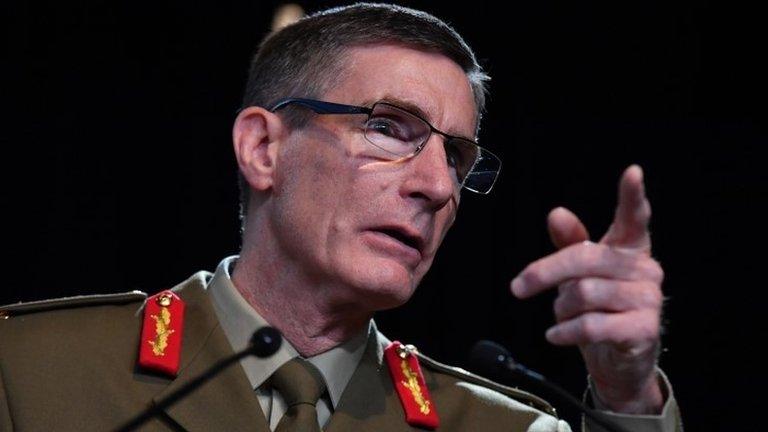Court finds UK war crimes but will not take action
- Published
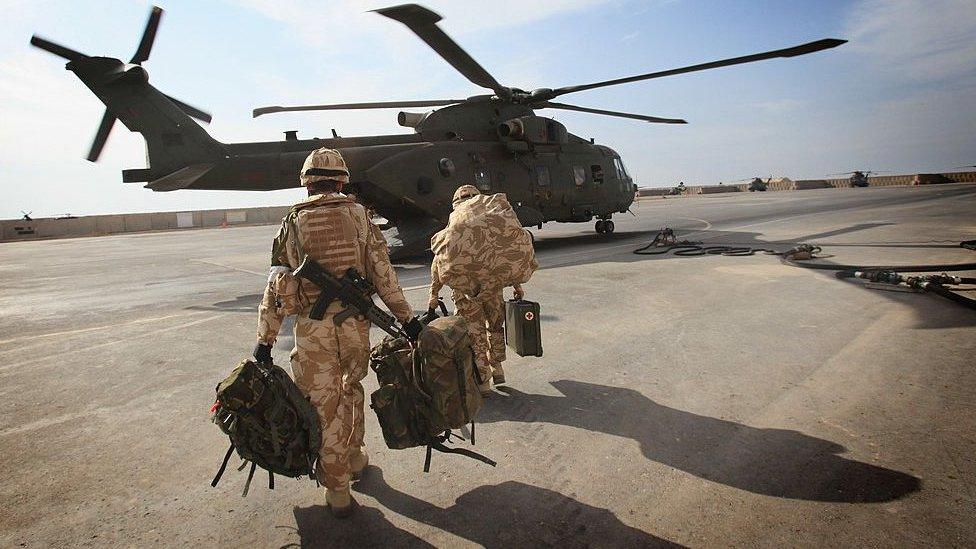
The International Criminal Court says it will not take action against the UK, despite finding evidence British troops committed war crimes in Iraq.
A 180-page report, external says hundreds of Iraqi detainees were abused by British soldiers between 2003 and 2009.
But the ICC could not determine whether the UK had acted to shield soldiers from prosecution.
The MoD said the ICC report "vindicates our efforts to pursue justice where allegations have been founded".
The ICC told the BBC: "It is without dispute there is evidence war crimes were committed."
Its report said there was a reasonable basis to conclude that at least seven Iraqis were illegally killed while in British custody between April and September 2003.
The ICC report refers to evidence of a pattern of war crimes carried out across a number of years by soldiers from several British regiments. Some detainees were raped or subjected to sexual violence. Others were beaten so badly they died from their injuries.
The Iraqi individuals, many of them civilians, were unarmed and in British custody at the time.
The UK government has repeatedly accused human rights lawyers of bringing vexatious claims, but the ICC says it is "disingenuous to describe the entire body of claims, involving hundreds of claimants, as baseless or spurious".
A BBC Panorama investigation last year revealed that British detectives had also found credible evidence of war crimes committed in Iraq.
But the programme discovered that despite this, not one of the cases was taken forward by the army's prosecution service.
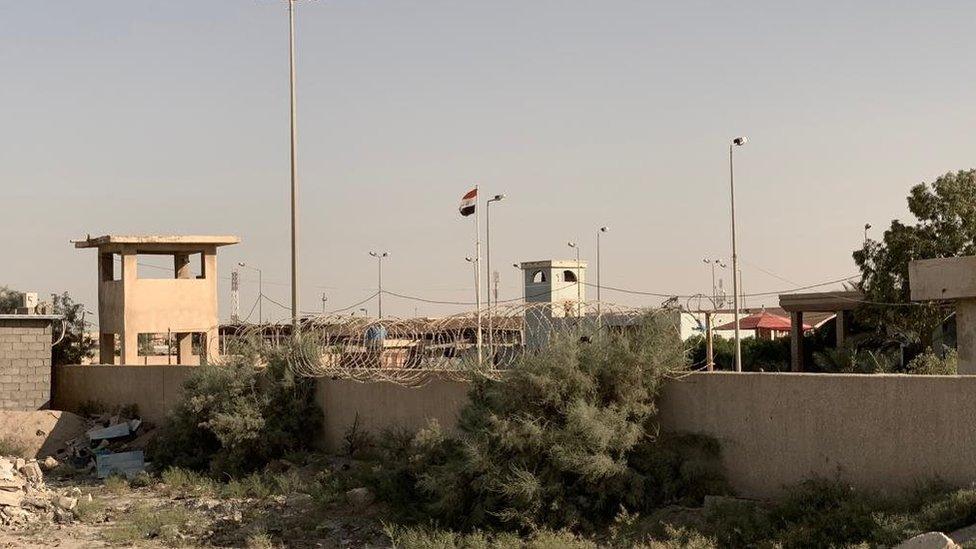
British army base Camp Stephen in Basra, Iraq, where numerous detainees were alleged to have been abused and killed
The ICC said it took Panorama's findings very seriously, and that on the whole the information it received was consistent with the reports in the programme.
It could "not rule out" that there had been a cover up on the part of the British authorities.
'Inadequate'
Its report concluded that investigations by the Royal Military Police had been "inadequate" and were "marred by a lack of independence and impartiality".
However, it could not make a determination as to whether the UK had acted to shield soldiers from prosecution.
The ICC said it will reopen its examination of the UK's conduct in Iraq "should new facts or evidence" come to light.
The UK government is currently seeking to introduce a controversial new law which will make it harder to prosecute British soldiers.
It says the Overseas Operations (Service Personnel and Veterans) Bill, if passed, "delivers on the government's manifesto commitment to tackle vexatious claims and end the cycle of re-investigations against our brave Armed Forces".
After scrutinising the proposed legislation, Parliament's Joint Human Rights Committee has said: "We found that the real problem is that investigations into incidents have been inadequate, insufficiently resourced, insufficiently independent and not done in a timely manner.
"The government is effectively using the existence of inadequate investigations as a reason to legislate to bring in further barriers to bringing prosecutions or to providing justice for victims".


There is a palpable sense of relief inside the Ministry of Defence that the International Criminal Court will not be pursuing a case against the UK government over allegations that British forces in Iraq committed serious war crimes against Iraqi detainees.
That said, there's still the potential that the ICC report will cause the government problems.
The publication comes as the government tries to pass new legislation aimed at protecting troops from what it calls "vexatious claims" by lawyers against British troops over allegations of abuse.
Among the proposals of the Overseas Operations Bill is a presumption against prosecution five years after any alleged abuse, unless there's compelling new evidence.
The legislation, which has already passed its first stages in the Commons, has been widely criticised by opposition parties, human rights groups, lawyers and some former senior military commanders.
The ICC report also raises concerns about the legislation.
The Ministry of Defence says the ICC has brought no new evidence to light.
But the ICC prosecutor says: "The fact the allegations investigated by the UK did not result in prosecutions does not mean that these claims were vexatious."
Those words will be seized upon by the bill's critics.

One of the investigations by the Royal Military Police, featured in last year's Panorama, was into the death of Radhi Nama in British custody.
The Royal Military Police concluded he had died of a heart attack - even though his body and face showed signs he had been beaten.
To date, no one has been prosecuted in connection with Radhi Nama's death.
His daughter, Afaf Radhi Nama, told Panorama: "I saw torture signs on his body.
"They covered his head and tied his hands, he could not defend himself, and they killed him. It is my wish to see the soldiers who committed this crime put on trial and facing justice.
"If I was a British citizen my rights would be respected, but because I am an Iraqi citizen, it seems I have no rights."
Defence Secretary Ben Wallace said the ICC review "confirms that the UK is willing and able to investigate and prosecute claims of wrongdoing by armed forces personnel".
He said it had brought to light "no new evidence" and the ICC statement "vindicates our efforts to pursue justice where allegations have been founded".
"I am pleased that work we have done, and continue to do, in improving the quality and assurances around investigations has been recognised by the ICC," he said.
"The Service Justice System Review and the appointment of Sir Richard Henriques to provide assurance of our investigative processes are all steps towards making sure we have one of the best service justice systems in the world."
Related topics
- Published17 November 2019
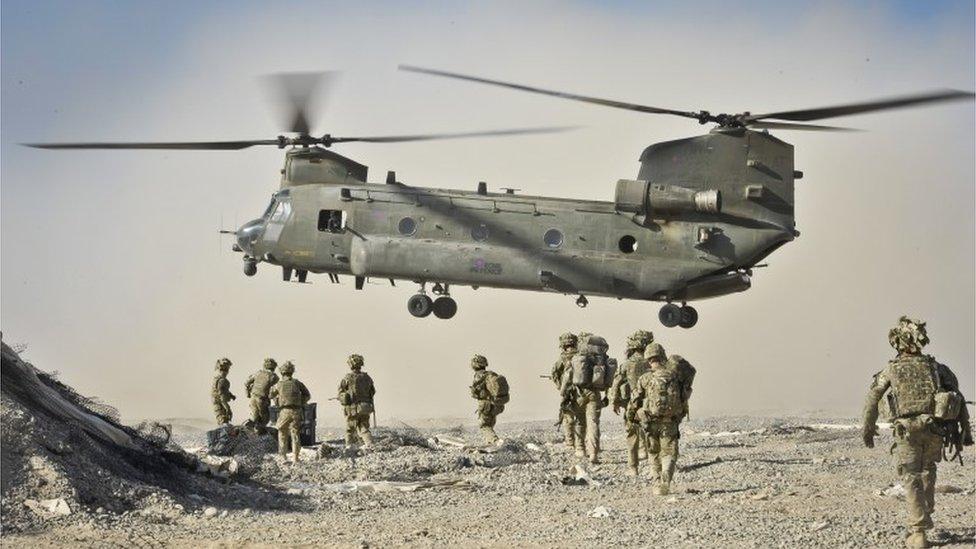
- Published18 November 2019
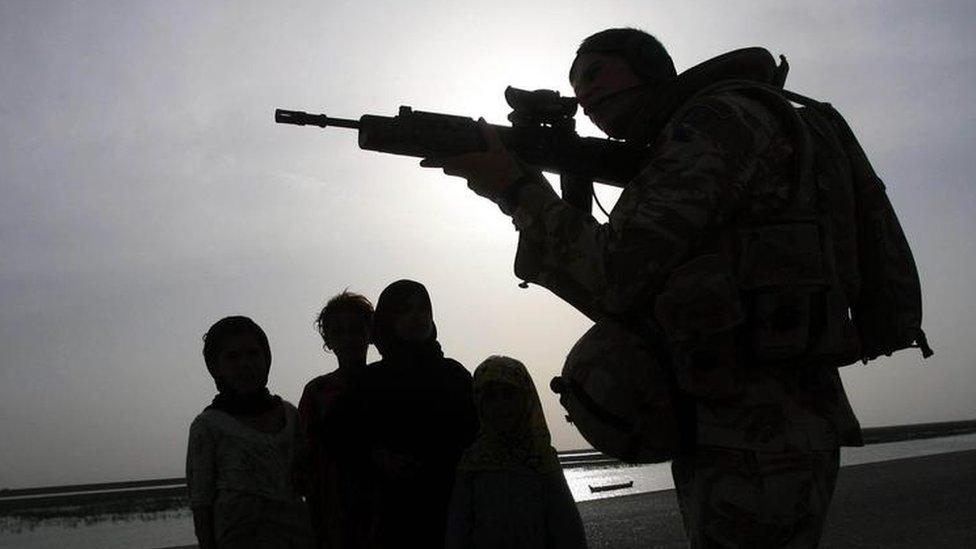
- Published1 August 2020
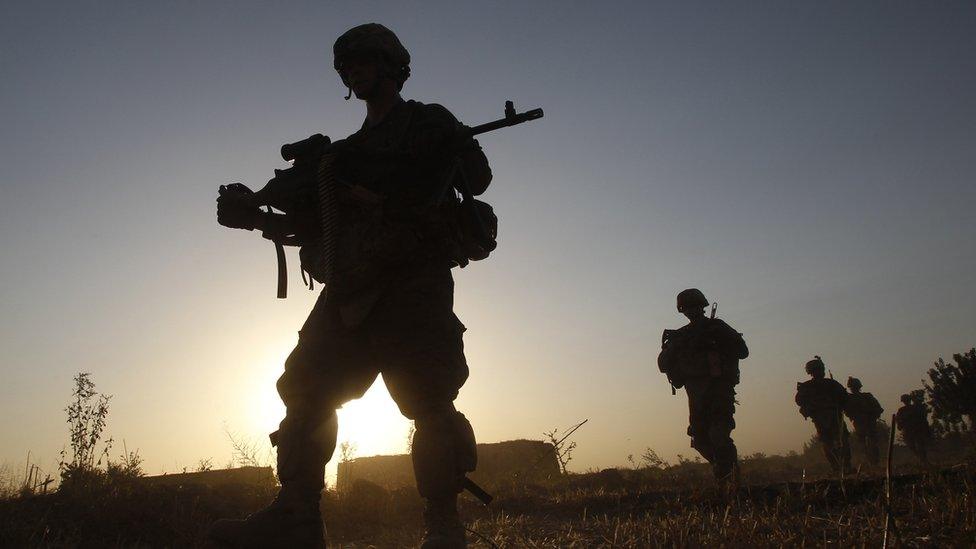
- Published19 November 2020
